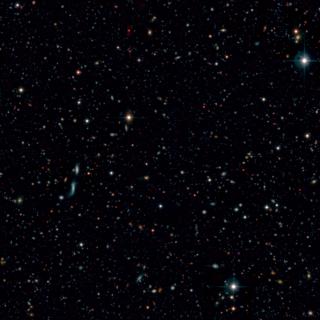Bibcode
Lutz, D.; Poglitsch, A.; Altieri, B.; Andreani, P.; Aussel, H.; Berta, S.; Bongiovanni, A.; Brisbin, D.; Cava, A.; Cepa, J.; Cimatti, A.; Daddi, E.; Dominguez-Sanchez, H.; Elbaz, D.; Förster Schreiber, N. M.; Genzel, R.; Grazian, A.; Gruppioni, C.; Harwit, M.; Le Floc'h, E.; Magdis, G.; Magnelli, B.; Maiolino, R.; Nordon, R.; Pérez-García, A. M.; Popesso, P.; Pozzi, F.; Riguccini, L.; Rodighiero, G.; Saintonge, A.; Sanchez Portal, M.; Santini, P.; Shao, L.; Sturm, E.; Tacconi, L. J.; Valtchanov, I.; Wetzstein, M.; Wieprecht, E.
Referencia bibliográfica
Astronomy and Astrophysics, Volume 532, id.A90
Fecha de publicación:
8
2011
Revista
Número de citas
460
Número de citas referidas
442
Descripción
Deep far-infrared photometric surveys studying galaxy evolution and the
nature of the cosmic infrared background are a key strength of the
Herschel mission. We describe the scientific motivation for the PACS
Evolutionary Probe (PEP) guaranteed time key program and its role within
the entire set of Herschel surveys, and the field selection that
includes popular multiwavelength fields such as GOODS, COSMOS, Lockman
Hole, ECDFS, and EGS. We provide an account of the observing strategies
and data reduction methods used. An overview of first science results
illustrates the potential of PEP in providing calorimetric star
formation rates for high-redshift galaxy populations, thus testing and
superseding previous extrapolations from other wavelengths, and enabling
a wide range of galaxy evolution studies.
Herschel is an ESA space observatory with science instruments provided
by European-led Principal Investigator consortia and with important
participation from NASA.
Proyectos relacionados

Evolución de Galaxias
El estudio de la evolución de las galaxias es un tema crucial de la Astronomía Extragaláctica moderna. Permite vincular las galaxias locales con las primeras que existieron en el universo. Pero para poder abordarlo es preciso obtener censos estadísticamente significativos de galaxias de distintas luminosidades, a distintas distancias
Jorge
Cepa Nogue